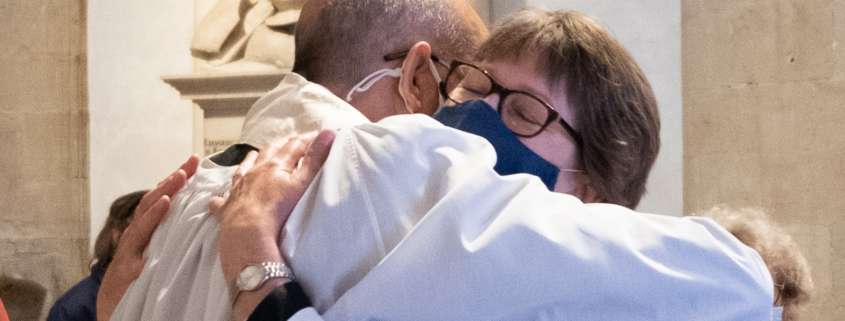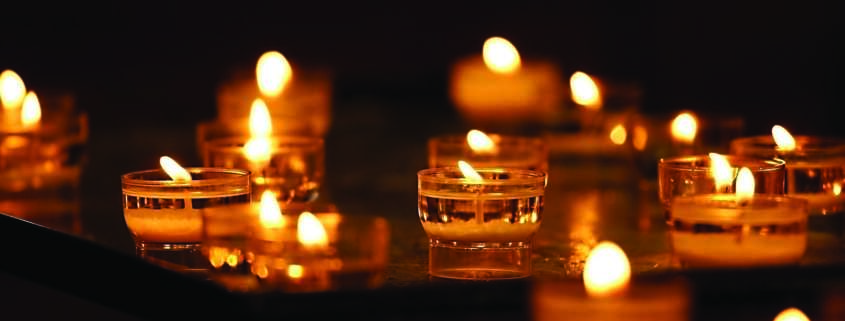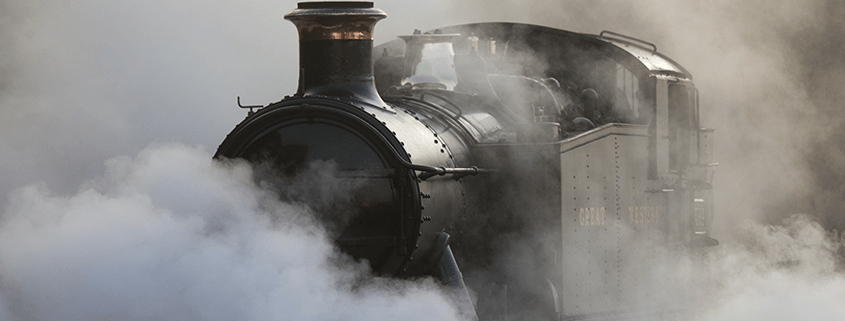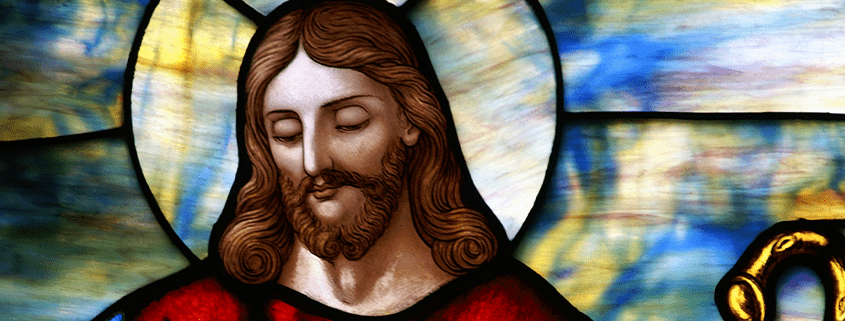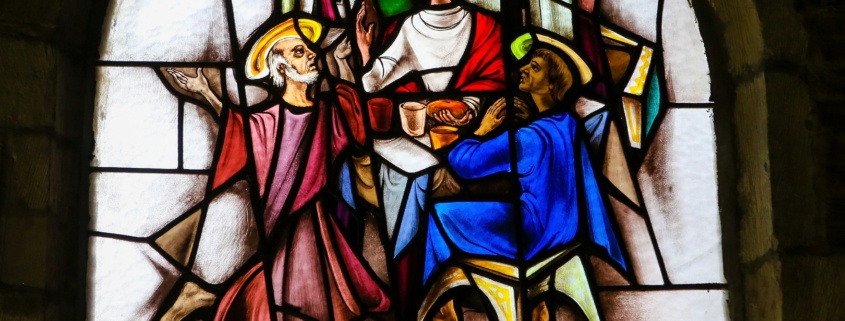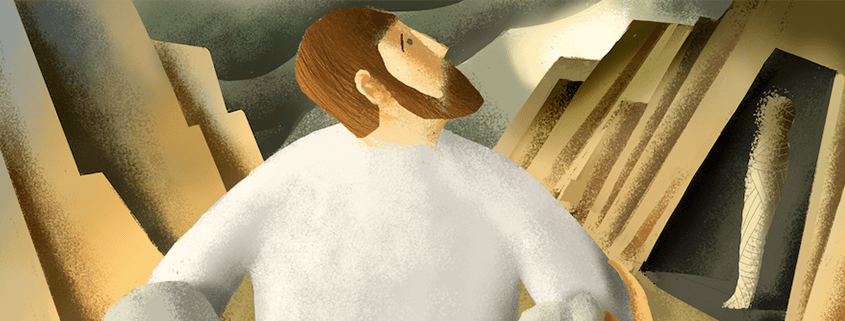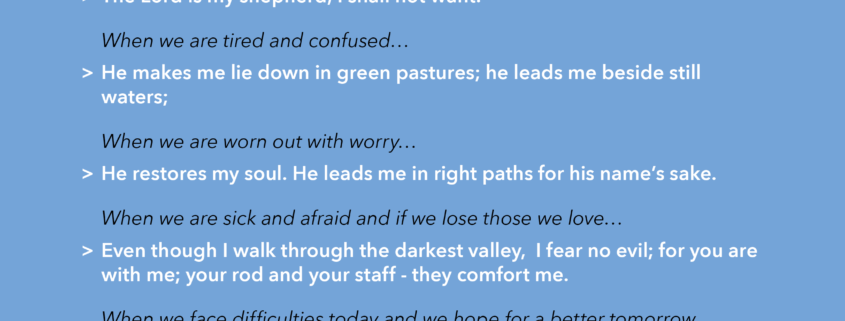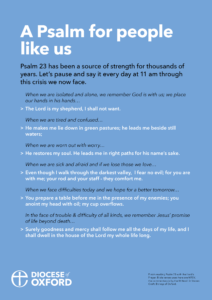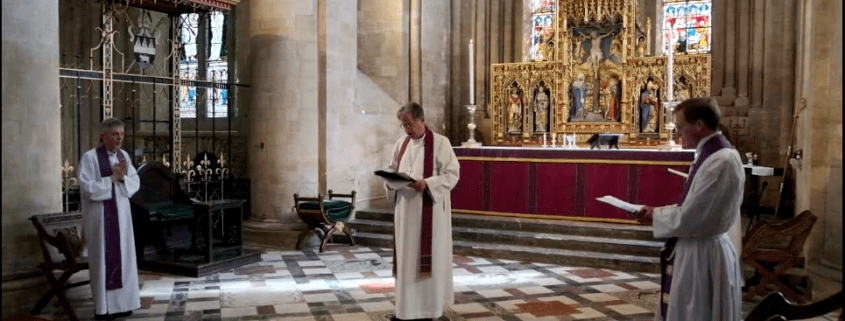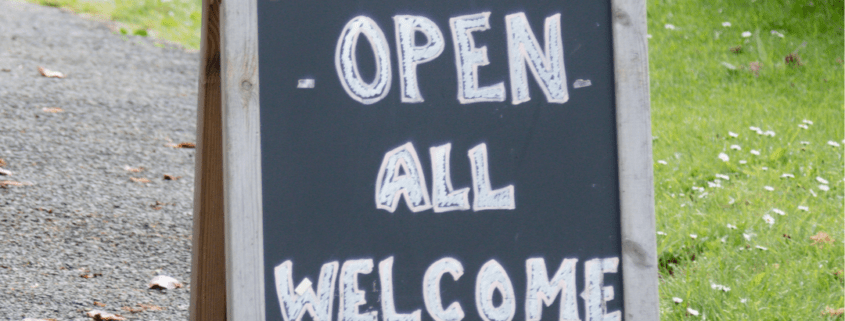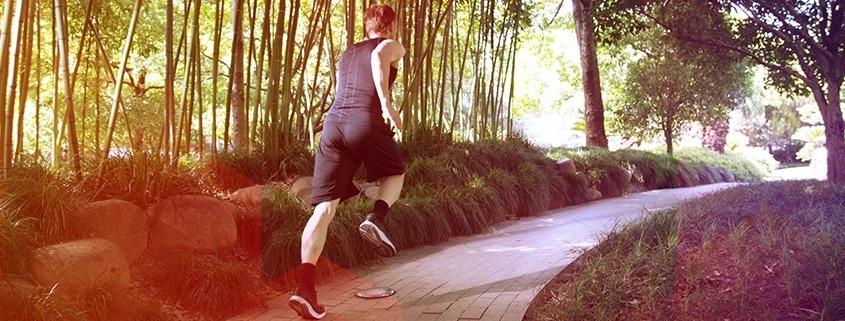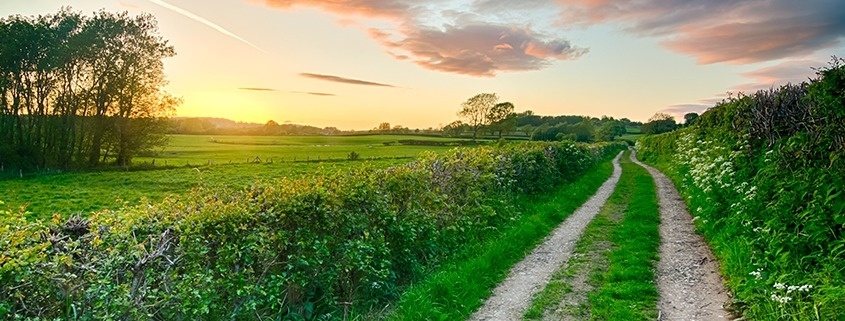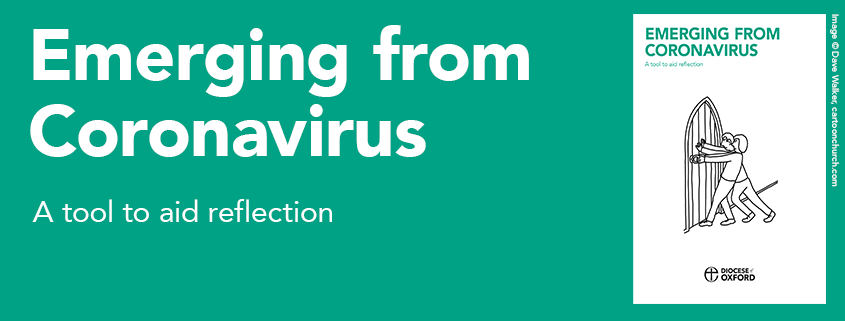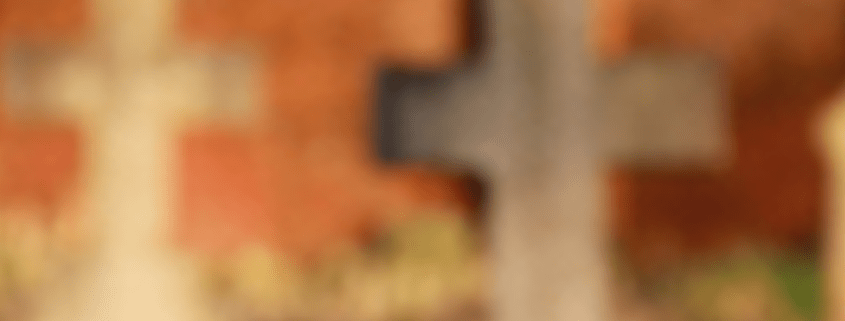An update on COVID-19 guidance for churches from July 2021, including Communion from the common cup and safe worship for all.
Posts
Prayer for the Nation
A message from Bishop Steven in light of the Covid-19 death toll
On 26 January 2021, the UK’s Covid-19 death toll sadly reached 100,000 people. In an interview with BBC Radio Oxford, Bishop Steven shared his sympathies and encouraged listeners to join in with Prayer for the Nation, a daily prayer initiative from the Archbishops of Canterbury and York.
The Bishops of Buckingham and Reading also shared their thoughts and prayers.
The Very Revd Prof. Martyn Percy: Dean of Christ Church, Oxford gave the following sermon during our Church at Home online service on the Sixth Sunday of Easter, 2020
‘If you love me, you will keep my commandments. And I will ask the Father, and he will give you another Advocate to be with you for ever. This is the Spirit of truth, whom the world cannot receive, because it neither sees him nor knows him. You know him, because he abides with you, and he will be in you. I will not leave you orphaned; I am coming to you. In a little while the world will no longer see me, but you will see me; because I live, you also will live. On that day you will know that I am in my Father, and you in me, and I in you. They who have my commandments and keep them are those who love me; and those who love me will be loved by my Father, and I will love them and reveal myself to them.’ – John 14:15-21 New Revised Standard Version, Anglicised (NRSVA)
“I Will Not Leave You Orphaned; I Am Coming To You”
Fifty years ago, one of my favourite films was released. It is a movie for all ages, and has enjoyed enduring popularity. The year was 1970; the film is The Railway Children. I remember going to see it at the Crosby Odeon with my grannie. I loved the film for several reasons. Jenny Agutter, naturally! And Bernard Cribbins, playing the genial role of Perks, the railway-worker.
The Railway Children concerns a family who move out from London to a house in the shires near a railway. Their move was forced upon them, after the father – an intelligent, high-ranking civil servant – was unjustly imprisoned for espionage, but is eventually exonerated.
In their new environs, the three children – ‘Bobbie’ (Jenny Agutter), Peter and Phyllis – befriend an older gentleman who normally takes the morning train from near their home. He becomes an unlikely hero, for in his empathy for the children, is moved to help prove their father’s innocence, thereby reuniting the family. Before the father is freed, however, the family care for a Russian exile who came to England looking for his lost family. And the railway family also take in Jim, the grandson of the old gentleman.
For a good part of the film, the children are effectively orphaned. The climax is achingly beautiful. The train pulls in and stops, and Bobbie, alone, stands on the platform and waits, not knowing if her father is there. The entire scene is consumed in the steam and smoke of the locomotive. And out of the clouds, the father emerges. As the gospel has it today: “I will not leave you orphaned; I am coming to you.”
When we think of orphans, we instinctively think of children without parents. In fact, the English word ‘orphan’ comes from the Greek orphanos, meaning merely ‘bereaved’, ‘bereft’ or ‘deprived’. In English, it has come to signify a child losing one or both parents. Of course we are always somebody’s child. Unless we predecease our parents, we will all know what it is to be orphaned: to be without our father or mother. We can be an orphan at any age.
This pandemic has so far led to over 30,000 deaths in our land, and that number will continue to climb. That means there are hundreds of thousands of new orphans today; and a great many more family, friends and colleagues are also sadly bereft. We only understand the gift of who we truly loved when we experience their loss.
So on this Sixth Sunday of Easter, we wait for another loss, even after the crucifixion. For after the resurrection of Jesus comes the Ascension. He leaves, and returns to the Father. The disciples will bereft once more – orphaned. Yet the scriptures promise us an end more like The Railway Children.
In the gospels Jesus refers to the Holy Spirit as “the Comforter”, and it is this name that most closely associates the maternal and paternal comforting care that Jesus gives – so abundantly in his ministry – with what is to come after he has gone. The gospels record Jesus saying “do not worry” or “do not be afraid” over and over again. Seventy times, in fact. Yes, seventy.
Jesus says it a lot. Don’t be afraid of the storm, or of sinking in this boat. Do not worry about lack of food or clothes. Do not worry about those who hate you. Do not worry about death. “Do not be afraid…I am with you”, says Jesus. Time and time again.
As a child, I grew always knowing I had been adopted. It has had, and continues to have, a profound influence on my personhood, ministry and theology. Deeply imprinted in my soul and psyche is the knowledge that, though I was, literally bereft as a baby, I was not in fact abandoned. I was blessed with good and loving parents, who came for me, and took me home. Interestingly, another meaning of the word ‘orphan’ is quite general – ‘to change allegiance; passing from one status to another’. That was my experience. My status moved from being an “unwanted baby” to becoming a much-cherished, much-wanted, much-loved…son.
Many years later, as an adult, my parents told me that, in fact, I had never been “un-wanted”. My birth mother simply could not keep me. But she had held me for the first weeks of my life, and only gave me up when she handed me over, in person, to the couple that came for me – my parents. My ‘new normal’ was to learn that I had always been held and cherished.
The first Christians cared for and cherished orphans. The scriptures give many examples of infants being adopted and raised by folk that are not their biological parents. The early church was called to be an adopting, caring and comforting community for everyone – especially the neglected, marginalised and bereft. The words Jesus speaks to us are what he calls us to proclaim and practice to the rest of humanity today: “we will not leave you orphaned or bereft; we are here for you; we are coming to you; do not be afraid; God never leaves any of us.”
So what of here and now? I recall an NHS advertising poster some years ago to recruit new nurses. The advert pictured a nurse cradling a new-born baby, and the caption read: “the first few minutes of life can be critical”. But someone had daubed a bit of graffiti underneath: “…and the last few moments can be a bit dicey too.”
This is a fearful, tender time in our nation. Cradling, holding and caring for others at the beginning and end of life – and for all that bit we call “the middle” (perhaps three-score-years-and-ten?) – is where our calling as the church must be. Remembering the words of Jesus, which have been, are being, and will be fulfilled: “I will not leave you orphaned or bereft; I am with you. Do not fear. I am coming to you.”
Alleluia, Amen.
The Venerable Judy French, Archdeacon of Dorchester, gave the following sermon during our Church at Home online service on Sunday 26 April: A Reflection for Easter 4 Acts 2:42-end; Psalm 23; John 10:1-10
Today is unofficially known as ‘Good Shepherd Sunday’ in the Church’s calendar, because on this 4th Sunday of Eastertide there is always a reading from part of John’s Gospel Chapter 10, in which Christ says, ‘I am the Good Shepherd’. It’s a very well-known and well-loved picture of Jesus, and brings to mind someone who will guard and protect us, care for us and know us each by name, who will lead us to good pasture and back home again to safety, who will come looking for us when we are lost. And that’s reinforced by the words of Psalm 23, which we’ve being praying together every day during the lockdown – the Lord is my Shepherd, he shall refresh my soul. It’s an image woven into the biblical story of God’s relationship with his people, as shepherd and flock.
In today’s Gospel, Jesus tells a little story about a sheepfold and explains the difference between those who hop over the wall to do a bit of sheep-stealing, and the one who enters by the gate and knows every sheep by name. One lot are thieves and bandits and absolutely not to be trusted, and the other is the shepherd who can be trusted to look after the sheep. So far, so good. The message is that we have to listen to the voice of the shepherd who will look after us, and not the thief who wants either to kill and eat us or sell us at the market for his own profit. Make of that what you can. Jesus first focuses attention on the relationship between the shepherd and the sheep, because that is fundamental to what follows; it is crucial for the life and well-being of the sheep, and indicative of what Jesus will do for them, ultimately. But even given the familiarity of the image for his hearers, they don’t understand what he’s talking about or why it’s relevant.
And then just as we are expecting Jesus to say he is the Good Shepherd, which brings to mind all sorts of traditional childhood pictures, he says instead, ‘I am the gate for the sheep’. A gate is not a very rosy or sentimental image. It is practical. It is the shepherd, lying across the entrance to the sheepfold, to guard and protect. It is a way in and a way out; it enables a keeping together in one place and separating, the sheep inside from the dangers outside. Jesus said, ’I am the gate. Whoever enters by me will be saved, and will come in and go out and find pasture. The thief comes only to steal and kill and destroy. I came that they may have life, and have it abundantly.’ And there’s the point of the story: it’s not about security, it’s about abundant life.
It’s particularly poignant in our current context when our coming in and going out is restricted, and what we do and where we go has the potential to affect the life and health of others. This is life, but not as we know it. In a very short space of time, we are having to learn new ways of living and worshipping and working. We may have mixed feelings about the lifting of restrictions: a longing for the freedom of movement we once had; some loss of confidence about our safety and that of those we love if we go out; anxiety about the economy, businesses, and livelihoods; a fresh emerging vision of doing things differently as we emerge from this, particularly in terms of family life, working patterns, church life, the climate emergency. Both during the lockdown and as we emerge from it, we are first disciples of Jesus; we come and go and engage with the world around us, whether at home or in our communities, through listening to the voice of the shepherd, the one who leads us and offers abundant life.
In John’s Gospel, the story of the sheepfold is told in the context of Jesus healing the man born blind, which takes up the whole of the previous chapter. By the end of that story, the man is thrown out of the synagogue by the religious leaders who don’t accept that Jesus is from God. But the man who now sees, recognises and believes in Jesus, and becomes his disciple. Jesus follows that life-changing encounter with the story of the sheepfold and contrasts exclusion and inclusion, death and life. We read this story in the light of Easter and resurrection, and it is significant too that what follows is the raising of Lazarus and Jesus’ own journey to the cross, as the shepherd gives his life for the sheep. ‘I have come that they may have life, and have it abundantly.’
Over the last six weeks or so, our homes have become not only places of home-schooling, work, and family life, but also very intentionally places of prayer and worship. Church at Home, church online, our own times of prayer and reflection, have become ways in which we are focussing, probably more than we did before, on listening to the voice of the shepherd. Doing and being church online is so new for many of us, and as our online presence grows, we are beginning to ask what ‘church’ will look like when the lockdown lifts, and we can return to our church buildings. What’s the exit strategy? We don’t yet know what that looks like for the country or for the church. What will be the ‘new normal’? How do we go forward with a ‘mixed-mode’ church? How do we grow our regular congregations alongside our new online worshipping communities? There is a sense that God is doing something new, and that is exciting, but it’s also unsettling because we don’t know what the future looks like; we are out of our comfort zones. It feels like we really are putting out into deep water, to use another metaphor. If we take our cue from the Gospel today, we will best meet whatever comes next by keeping on listening for the shepherd’s voice, keep returning to the one we trust, who knows us by name and leads us, the Lord who is our Shepherd, who restores and refreshes our souls.
Amen.
Bishop Colin gave the following sermon during the Church at Home online service on Sunday 26 April
Whilst there are a lot of negatives about the current lockdown, and I wouldn’t want for a moment to minimise the difficulties, whether mental, social, financial or relational, that so many are living through, there are nevertheless some silver linings around as well.
For me, one of those is the walks I am managing to make almost every day. It’s hard now to believe that I’ve lived here almost twenty years and that I hadn’t discovered the delights of Bladon Heath with its wonderful bluebells and Roe and Muntjac deer, or the superb views from Spring Hill, up above Begbroke, looking out both over the dreaming spires of Oxford and giving a glimpse of almost all the deaneries of the Dorchester Area – which is a great incentive to pray for them.
Of course, the weather has also been a great help and the sunshine of the last week was fantastic. I can feel a lightness in my step when it’s warm and when there’s a wind behind me. All very different when it’s cold and wet, and there’s a gale blowing in the wrong direction. Then it’s more a case of forcing one foot after the other.
Imagine for a moment watching Cleopas and his friend walking along the road from Jerusalem to Emmaus. Those seven miles, something over the 10,000 steps so beloved at present, must have seemed very long ones indeed. Even if much of it was downhill, I doubt very much if there was any sort of spring in their step. Their dreams had been shattered. They had hoped that Jesus would be the one to redeem Israel but he’d ended up on a cross. And even when news came from the women of an empty tomb, and a vision of angels, and others confirming that Jesus’s grave no longer had his body in it, this pair couldn’t even summon up the energy to go and see for themselves. All they could do was to leave Jerusalem and get away from the pain and disappointment.
Yet what a difference we would have seen had we been standing in the same spot just a few hours later. The same two figures, now in the gloaming, hurrying back to the place they had been so anxious to leave. If not actually running, in my mind’s eye I see them walking with a firmness to their step, their heads held high, talking excitedly with a whole new purpose to their lives.
The reason, of course, as we know, was that they had been met by, and then come to recognise, the risen Jesus, and for them that was transformative. All of which could leave us with the impression that all was now right with their world and what happened next was a fairy-tale ending and that both of them lived happily ever after. Well actually we don’t know what happened next to them, and it may be a far cry from the reality of what they lived through in the following weeks and months and years.
Certainly, that night they were walking back into danger. The disciples gathered in that Upper Room were living in fear of their lives. There was excitement of the encounters with Jesus, Pentecost, and the heady days of the expansion of the Church still to come – but persecution and martyrdom were to follow rapidly in succession and it strikes me that those twin realities are very much part of our experience as Christians – excitement and joy and disappointment and fear often run very close together. They may not be the exact two sides of the same coin, but they are often the lived reality for many of us. Certainly that is my sense of what is going on at the moment.
We are in Eastertide, celebrating quite properly the joy and power of the Resurrection Season. Christ is risen from the dead. Death has indeed been conquered and there are plenty of reasons for proclaiming Hallelujah. I remember too, the words of St Teresa of Avila at this point. I think that they underestimate God’s sovereign ability to do as he wills – but the underlying sentiment is certainly something I see being expressed in church after church at the moment. ‘Christ has no body but yours. No hands, no feet on earth but yours. Yours are the eyes through which he looks with compassion on his world. Yours are the feet with which he walks to do good. Yours are the hands through which he blesses all the world. You are the hands, yours are the feet, yours are the eyes, you are his body. Christ has no body on earth but yours.’
And in that context, as I phone people and Zoom around the place I am very encouraged by the way in which in community after community is experiencing congregations who go way beyond what might have been expected of them, they are resurrection people they always were but they are being given a chance now to express that whether through food distribution and neighbourly care, as they work in partnership with each other, and with others. These are, I believe, exciting times with tremendous opportunities for churches.
Whilst very often we have been told that the digital world and networks meant the end for the significance of physical, geographical communities, the last few weeks have shown very clearly how these two can belong together, and mutually benefit each other. Likewise, in talking to those who have been streaming their services, many clergy have been impressed by the way in which the elderly members of the congregation have adapted to them – and for those technically challenged like myself it will be so much easier when the grandchildren can visit to sort out my problems. But won’t it be great if as a result of this, our housebound members never felt completely cut off from the fellowship of their churches. Resurrection people bringing new life in all kinds of ways.
Yet alongside the excitement are the leaden feet walking to Emmaus. Feet overwhelmed by the present pain and the difficulties of financial insecurity, or bereavement, or sickness that experience of being cooped up and, above all else, I sense, the fear of an uncertain future and the nagging question: ‘When will this come to an end?’ or, to be more realistic, ‘When might things begin to get better?’. Such fears are all too real. They cannot and must not be denied.
But, with them, in the light of the twin realities of joy and sorrow that Christians have experienced these down the centuries, and alongside them comes the footfall of the one who walks with us both in the green pastures and in the valley of the shadow of death, the one who is saying to us now, in the midst of the confusions: ‘When you pass through the waters I will be with you; when you pass through the rivers, they will not sweep over you. When you walk through fire you will not be burned; the flames will not set you ablaze. For I am the Lord your God, the Holy One of Israel, your Saviour” (Isaiah 43: 2,3).
Amen.
The stilling of the storm
Seven days ago, Pope Francis began his address to the city of Rome and the world with these words:
“Like the disciples in the Gospel we were caught off guard by an unexpected, turbulent storm. We have realised that we are on the same boat, all of us fragile and disoriented, but at the same time important and needed, all of us called to row together, each of us in need of comforting the other. On this boat… are all of us. Just like those disciples, who spoke anxiously with one voice, saying “We are perishing” (v. 38), so we too have realized that we cannot go on thinking of ourselves, but only together can we do this”.*
We have absorbed the first shock of the pandemic. We are learning to work in new ways and to work together across Church and society. We gather ourselves for the next wave. We hold together and support each other in the grace of Jesus Christ.
Thank you again for all you are being and doing. It is deeply appreciated in both church and wider community. The creativity, love and compassion evident in the Diocese are like shafts of light piercing the darkness.
Holy Week and Easter
Holy Week and Easter this year will be like no other we have experienced. Many local churches are offering prayers and meditations. Thank you. Many others can’t do this or prefer to focus their energies elsewhere and to join in the streamed worship offered by the Diocese. Don’t subject yourself to unnecessary guilt.
We are now making plans to offer live streamed worship for the Diocese on Sundays and Holy Days in the coming months to complement what is offered locally. We want this Diocesan prayer and worship to be sustainable over the long haul, collaborative, creative, accessible to all traditions, reliable and prioritising not competing with the local.
Our principal Diocesan services will be at 10 am each Sunday as last week. Wherever possible this will be live with some pre-recorded elements. The full list of services and times for Holy Week and Easter is as follows:
Palm Sunday 10 am A Diocesan Eucharist with Bishop Olivia presiding
This will introduce Holy Week and point forward to a nationally provided and recorded dramatised Passion reading.
Maundy Thursday 11 am
The Renewal of Vows for Licensed and Ordained Ministry
Please would all licensed and ordained ministers gather for this Service of the Word with the traditional renewal of vows. Please retain your oils from last year as it will not be possible to bless or distribute new ones. I hope that Deanery Chapters or smaller groups might gather virtually before or after the service to give something of a sense of the fellowship we enjoy together.
Maundy Thursday 8.15 pm
A Diocesan Eucharist with Bishop Colin presiding
For Good Friday we will offer a series of six short addresses from myself, each with hymns and prayers as podcasts. These will be available from noon on Maundy Thursday to listen to on the website or download as a podcast. You may want to listen to them and keep the traditional three hours; or space them out across a whole day set aside for prayer; or use from Maundy Thursday to Holy Saturday; or just use the final two as you keep watch at the cross.
Easter Day at 10 am
A Diocesan Eucharist and I will preside and reflect.
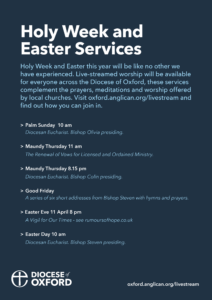 These services are all advertised in this flyer (colour version or mono low ink version. Please do make them known to as many people as possible if you are not promoting your own services.
These services are all advertised in this flyer (colour version or mono low ink version. Please do make them known to as many people as possible if you are not promoting your own services.
Again and again I have brought to mind in recent weeks the verse from the temptation stories: we do not live by bread alone. At this time more than at any time we need to offer spiritual resources for the challenges we face.
I am very grateful to the team of liturgists and communications staff who are working hard to make all this possible. There may well be hitches and glitches. Bear with us.
The Church of England app (currently #LiveLent) will carry my own reflections on the Lord’s Prayer with new introductions in this time of pandemic for the forty days of Easter beginning on Easter Day.
Funeral Services
I am very concerned to hear that some of you are being placed in an unacceptable situation at a crematorium or graveside funeral, with scores of mourners arriving and fully expecting to attend the service. At this time of crisis we, more than ever, wish to offer the ministry of the church to those that we have been called to serve but this must be done safely.
The present Government guidance says that numbers at funerals should be restricted and a safe distance preserved.
The Church of England guidance is aligned to that of the Government and unpacks the meaning of ‘close family’,
Because of the present public health regulations, the only available options for Church of England funerals are the following:
• a short service at the crematorium, with or without a very small congregation, which may only include spouse/partner, parents, and children of the deceased;
• a short service at the graveside, under the same conditions.
This guidance is clearly not being enforced by many of the crematoria or cemeteries in this Diocese and we have heard similar accounts from across the country. We have been in touch with the national church about this and they have petitioned the Government. We have also drawn it to the attention of the statutory authorities across the Thames Valley.
There is no easy solution to the problem of too many people turning up at a funeral. I hope that a stronger lead will come from Government soon. In the meantime, I offer this best practice guidance:
- explain clearly to family in advance the rules about numbers and state that they must be strictly kept to; ask them to name for you the people who will be attending; ask them to explain to wider family and friends that they cannot unfortunately attend; explain option of a memorial service later in the year when this is over
- speak in advance with the funeral director and the crem/council staff to check that they are committed with you to following the Government guidance; have a shared plan for how to respond if larger than expected numbers arrive.
- If at the service larger numbers arrive, explain to everyone that only immediate family (spouse/partner, parents, and children of the deceased) can remain and look to the undertakers and crematorium staff to support you in this. Please do not place yourself unduly at risk.
I will also be writing a letter to all funeral directors, crematoria and council cemeteries seeking their support in this.
It is likely that, tragically, the number of deaths will continue to rise over the next few weeks and so, therefore, will the number of funerals in the remainder of April and May.
Please pace yourself through this period as best you can. Funeral ministry is demanding, particularly in a time of national tragedy. Take regular days off. Take time to de-stress after a funeral. Talk to colleagues and to friends. Don’t feel you have to accept every request beyond what is sustainable.
We are working at the moment to provide some central administrative support for clergy and undertakers to support what may be a surge in this ministry and will write with more information when that is in place. In common with the majority of dioceses, we will not be charging funeral fees for services at crematoria during this period starting immediately.
The Church of England has recently published a useful checklist on mental health for clergy and lay ministers.
Visiting the sick
One of the hardest features of the pandemic will be that we cannot and must not visit those who are sick in person. Our visits will have to be remote, but all of us can express warmth and companionship and pray for healing through phone and text and by other digital means. Those who are passing through the valley of the shadow of death need to know that God is with them and that we are continually praying for them and walking with them, albeit from a necessary distance.
Finance
Finance will not, I hope, be uppermost in our minds in the coming days. However, there is considerable anxiety already among PCC and Deanery Treasurers about the effect of the epidemic on fees, cash giving, lettings income and fundraising, and you will be aware of this.
Our Diocesan finance teams are working hard on this and we will communicate more in the weeks after Easter.
“He made the storm be still”
In Psalm 107 we read:
“He made the storm be still and the waves of the sea were calmed”
There are storms around us and there will be storms within us, of grief and fear, of questions. Christ is with us in the boat as it rises and falls with the waves. Christ is able to speak peace to the storm within and without.
It may well be that the initial shock and working together and community we see at present will fracture as the pandemic advances. We will need all of our patience and hope and resilience if that is so as we have to deal with anger and hurt and fear of all kinds.
Please watch over yourself in this and draw on the deep wells of the faith. Neither the Archbishops nor your own Bishops will get everything right through this crisis. Nor will any of us. We offer what we can, consecrating ourselves to God each day, in humility and in love and seeking to serve and give glory to God and to others.
In all of these ways, we are called to walk the way of the cross and to discover that it will also become the way of resurrection and of Easter hope.
Dear friends keep well; watch and pray and love. I look forward to our being together, if only virtually, on Maundy Thursday.
With our love and prayers,
+Steven, 3 April 2020
on behalf of the Area Bishops and Dean
The Cure of Souls
The most solemn moment of an institution service is, for me, when I commit the licence to the candidate and say these words:
Receive this cure of souls which is both yours and mine.
We will need to exercise this cure of souls as never before over the coming weeks as clergy, lay ministers and disciples together.
The cure of souls we are given is, of course, of the whole parish and benefice. The term cure means more than care (although all cure of souls is built on love). At its centre is the ministry of reconciliation between individuals and God and between people and communities through the death and resurrection of Jesus Christ.
This precious and extraordinary ministry is entrusted to us in this most difficult of seasons. We are (and we all feel) insufficient to the task. As Paul writes in 2 Corinthians 4:
“…we have this treasure in clay jars, so that it may be made clear that this extraordinary power belongs to God and does not come from us”
New guidance
Yesterday evening the Prime Minister introduced new restrictions on every part of the life of our country in an effort to curb the spread of the corona virus. These are absolutely necessary. They also restrict what we can and cannot do in our own ministries in the coming weeks.
The Archbishops of Canterbury and York, with the Bishops have today issued new guidance for the Church of England which applies across every diocese in the form of a letter and more detailed guidance on church buildings, funerals, baptisms and weddings. The template poster referred to in their letter can be found here for the Diocese of Oxford.
My first request to you must be to respect and follow the Prime Minister’s guidance on social distancing and the Archbishops’ guidance to the churches for your own sake and for the sake of the wider community and the most vulnerable.
This will mean exercising our ministry and our service of others working largely from home and through telephone contact and other technology.
Watching over ourselves and one another
Any ministry in these circumstances will be challenging. We will all be affected by corona virus in some way in our lives and families. All clergy, ministers and church officers will need to remember to watch over ourselves and to take care of one another.
If you need to self-isolate, you should do so. If you are ill, then report in as sick in the normal way and let your Area Dean know. If you find you are struggling with your emotional health then ease back and seek help and support.
The Area Teams will do their best to stay in telephone contact with the clergy and Wardens in vacant parishes and to suggest good ways of mutual support in local areas. We are very thankful for the ministry of Area Deans in particular at this time. Clergy and lay ministers will be doing the same within congregations. Love is not bound or restricted to face to face meetings or personal contact.
If we have not already done so, we need to prepare now for a long haul and for this situation to endure for several months. This means that sleep, rest and sabbath are vital to maintain health and resilience. Set a daily and weekly timetable which allows for this.
Prayer and worship
Regular patterns of prayer and worship are absolutely vital for clergy and ministers and for every disciple. We cannot live by bread alone.
Make sure you say your prayers daily. We all now are asked to pray in our homes and not in church buildings. There are various online helps and patterns of saying prayers through the daily office and we will make these known here:
Livestreaming of services from your home locally is a good thing. It will be really helpful for many to continue to connect with their local congregation. Over the last two Sundays the numbers sharing in livestreaming have been significant.
So we want to encourage local streaming where it is genuinely possible including of the Eucharist celebrated at home. However, for a variety of reasons, it will not be possible for everyone. If this isn’t possible for you, encourage your congregation to join in elsewhere and focus on other areas.
We will provide a single diocesan live-streamed Eucharist each Sunday and on principal Holy Days. This will be offered by a range of different people who will be offering prayers and reflections. The first of these services will be this Sunday, 29 March by the four bishops working together, each from our own homes (God willing).
We will also offer a Eucharist and Renewal of Ordination vows on Maundy Thursday at 10 am and principal services on Maundy Thursday evening at 8 pm, for Good Friday, the Easter Vigil and Easter Day. Full details later.
Please make these diocesan services known by whatever means you can alongside whatever is offered locally. The link for this coming Sunday is here. Please begin to circulate the details electronically to congregations now.
Pastoral care
Please Involve others in the pastoral care you offer through telephone contact and in other ways. This is a time to connect the Body of Christ together for mutual care, overseen by those who have the cure of souls. Many will be shocked, isolated and frightened. All of us are helped by being able to help others.
Feeding the flock
There will continue to be a need for fellowship, community and teaching through virtual means. We are hearing encouraging stories of the way people are connecting on line to support one another and reflect on the faith.
Many will be using the Church of England LiveLent App. On Easter Day this provision will continue through my own daily reflections on the Lord’s Prayer for the period between Easter and Pentecost, revised for the present situation. The App will also provide a guide for a small group conversation so that Christians can support one another and pray together through the Easter season.
Mission in the wider community
The cure of souls is also a ministry of love to the entire community. Work with others in this wherever you can especially in your care for the vulnerable. Continue to support foodbanks and care for the homeless. Donations to foodbanks can be financial as well as through giving food. Do what you can to support our teachers and chaplains. Encourage them and remember them in prayer.
Church House Oxford
Church House Oxford is now closed in accordance with government guidelines and all staff are working from home. All phones have been diverted so call the normal numbers for advice. The work of the Diocese will continue virtually.
Parish finances
We recognise that for some their parish finances are significantly dependent on Sunday collections, lettings and fundraising events and will be issuing advice to help following a consultation with deanery treasurers. Please support the need to sustain parish and diocesan income at this time when the Church’s ministry is needed as never before.
Appointments, Guidance and Advice
Appointments processes will be now be put on hold for the most part until early May at the earliest. The Guidance for Corona Virus is updated regularly on the Diocesan website. Please check it daily. The Area Deans and Archdeacons remain the first point of contact for advice and questions.
The Lord our Shepherd with us through this crisis giving rest to the weary, comfort to the bereaved and guidance to the perplexed. We are asking everyone across the whole diocese, every disciple of Christ, to pause at 11 am each day if your work permits and say Psalm 23 and the Lord’s Prayer, beginning tomorrow (with Pope Francis and our Archbishops).
Thanks be to God for the ministry of so many faithful Christians across the Diocese, called to reflect the light of Christ in the midst of the darkness.
With our love and prayers

+Steven
on behalf of Bishops Colin, Alan and Olivia
Episode
Rejoice in the Lord always. Again I will say, Rejoice.
Reflections for a Church in Lockdown
Finally my brothers and sisters, rejoice in the Lord. To write the same things to you is not troublesome to me and for you it is a safeguard.
‘Don’t you realise, Paul, how tired we are now? How much we’ve faced over the last few months? Has no-one told you about the closure of our churches, about the fear gripping the world, about the recession and the mental health crisis, about the risks of infection? Has no-one told you that we are not even able to sing? This is your message for us in the midst of a pandemic?…’
In this, the final episode of series 4, Bishop Steven explores how to live out this extraordinary command to rejoice.
Questions for discussion from Philippians 4:
- Read back through the letter and highlight the many different references to joy and rejoicing. What are the obstacles to joy which Paul confronts?
- Look back over the last four to six months of the COVID pandemic. Where have you found joy even in the midst of trials and difficulty.
- Write a prayer or a psalm along the lines of Habbakuk 3 describing the call to rejoice despite outward circumstances.
- How has the experience of lockdown changed your life and your discipleship? What lessons are you taking into the future?
Image: Shutterstock. The short music clip is taken from an exquisite live recording of ‘Ode to Joy’, here on YouTube
Finding strength from the centre
Reflections for a Church in Lockdown
We come to Chapter 3 of Philippians and Paul takes us deeper still in this lockdown journey: to the very core of his inner strength and resilience, to the convictions and the revelation which have shaped his life. He is helping us to travel back to the centre, to find strength again and to understand what gives him the power to run.
Questions for discussion from Philippians 3:
- What does the autumn season look like for you and how will this impact your energy and discipleship?
- Where have you found strength over the last few months? Where are you finding space to regroup and recharge?
- Paul’s relationship with Christ is at the very centre of his life and values. How can we help each other to draw such strength from the gospel?
- What are the spiritual dangers and temptations facing your own church community at the present time? Are there any similarities to Philippi? How can you counter them?
How to face enormous problems
Reflections for a Church in Lockdown
The more I’ve read Philippians over the last few weeks, the more I’m seeing it through the lens of anxiety. The Church in Philippi is a fearful and anxious church: a small community in a hostile and difficult place, worried for their own future, concerned for Paul, who taught them their faith and concerned for their future. Paul does everything he can in his letter to calm this anxiety, but he offers them something much more important than an answer…
Questions for discussion from Philippians 2:
- What are the significant choices which face your own parish and benefice around the re-opening of churches for physical worship? How likely is it that there will be conflict?
- Read carefully the encouragement to unity and to humility. How best can you take notice of this appeal and this lesson for your local church?
- This episode mentions three key questions for humanity in the next decade: the environment; equality and diversity questions and living well with technology. How will an understanding of Christ as God taking human form help to address these issues?
- What are the ways in which you have learned humility and seek to live your life after the pattern of Christ?
Living is Christ and dying is gain
Reflections for a Church in Lockdown
Almost two thousand years ago, a man we know as Paul sat down in his prison cell and wrote a short letter to his friends in a place called Philippi. He is writing to say thank you for their love and support. He is writing to encourage them. He is writing most of all because he can’t be there to support them. Paul is in lockdown…
Questions for discussion from Philippians 1:
1. How do you practice the discipline and joy of thanksgiving in your daily life and prayers? How might you grow in this discipline?
2. What have you missed about a regular sharing in the Eucharist during the period of lockdown? What have you learned from this season?
3. How have your values changed and shifted during lockdown? How have you travelled more deeply into Christ?
4. What are the issues facing people in the place where you live? How are the Christians called to be active, engaged citizens for the sake of the kingdom?
Image: Susanne Jutzeler, suju-foto used under a creative commons licence.
The River of Life
Reflections for a Church in Lockdown
Welcome to Episode 10. If you listened last week you might be expecting me to begin a new series of reflections on Philippians. I’ve allowed myself to linger for one more week in the Old Testament as we look forward and begin to rebuild.
“Then he brought me back to the entrance of the temple; there water was flowing from below the threshold of the east and the water was flowing down from below the south end of the threshold of the temple, south of the altar. Then he brought me out by way of the north gate and led me round on the outside of the outer gate that faces towards the east; and the water was coming out on the south side”.
– Ezekiel 47
Bishop Steven refers to this episode in a letter to the Diocese, which is available to read here.
Image: Shutterstock 4273713
A more Christ like Church for the sake of God’s world
A Presidential Address to the Diocesan Synod
Welcome to Episode 9 of this podcast series, Reflections for a Church in Lockdown. Over the last 8 weeks I’ve offered a reflection each week for the Church in the pandemic based on Psalms 1-8. Thanks for listening. If you missed them, they are all available online.
Today’s episode is different. We’ve come to a particular place now in our journey through COVID 19. The lockdown is easing. This week we opened many of our churches for private prayer. I hope it will not be long before we can begin to meet again. So this is a good time to look back but also to begin to look forward.
The journey of recovery will be slower than our journey into lockdown. Life is not going to be a quick return to the old normal, but rather a new living with the virus, certainly for the rest of this year and through next year. Lockdown has been difficult but has also brought new insights, opportunities and priorities to the surface. Part of being a contemplative church will be to reflect carefully on lessons learned and next steps.
We are therefore offering a new tool, loosely framed by the Anglican Five Marks of Mission, to aid reflection, to discern prayerfully, and to plan strategically the shape of the mission of the Church in each of our contexts.
The tool invites you to look at each mark of mission and reflect on what has been lost through the pandemic which we need to grieve, what has been reduced that we need to let go of, what has been reduced that we need to build up again, what has emerged that we need to respond to. We recognise that Church will need to change. But that change will emerge in a thousand different ways as locally we pay careful attention to the Spirit and as we hold onto our core values of being contemplative, compassionate and courageous after the pattern of Christ.
You can download and print out the tool here on the Diocesan website:
oxford.anglican.org/emerging-from-coronavirus
What are human beings that you are mindful of them?
Reflections for a Church in Lockdown
“Personally in reflecting on the events of the last several days, a verse from the Psalms comes to mind for me: “When I consider the heavens, the work of thy fingers, the moon and the stars which thou hast ordained, what is man that thou art mindful of him.”
The person speaking at the start of this episode is the astronaut Buzz Aldrin, part of the Apollo 11 mission in 1969 and the second man to walk on the surface of the moon. His words came towards the end of the Apollo mission, as a reflection back on the journey from earth to the moon, the flight down to the moon’s surface and the safe passage back to the command module. According to Aldrin, Psalm 8 helped inspire his colleague Neil Armstrong’s words as he stepped onto the moon’s surface: one small step for a man, a giant leap for mankind. The two astronauts placed a capsule in the lunar dust. Inside the capsule is the text of Psalm 8: ‘O Lord our governor, how glorious is your name in all the world.’
COVID-19 is terrible: the pandemic has taken lives and robbed people of loved ones and has threatened our way of life for a time. We are still in the middle of it. But if Psalm 8 gives us a perspective on human life, it is that this pandemic is not the greatest challenge of our generation…
God is a righteous judge
Reflections for a Church in Lockdown
The coronavirus pandemic has led the news bulletins every single day from mid March. But on 31st May, a different – though related – story at last broke through. Six days earlier an African American man named George Floyd was arrested by police. Tragically, George died in police custody. At the heart of the riots that have followed is a cry – a cry for justice. We need to remember as a society our deep instincts of fairness and goodness and justice. Psalm 7 is a very good place to begin and it is a prayer for help.
The music at the start of this episode is taken from a recording of ‘O Lord My God, In Thee Have I Put My Trust’ available on YouTube and also to stream on Spotify.
Photo: Steven Buckley
Lord heal me for my bones are racked
Reflections for a Church in lockdown
Episode 6: In our journey through the Psalms we come now to a psalm which focusses on illness, on anxiety and on healing. The episode begins with the opening lines of Psalm 6, beautifully set to music by Orlando Gibbons.
O Lord in thy wrath rebuke me not
Neither chasten my in thy displeasure
Have mercy upon me, O Lord, for I am weak
O Lord heal me, for my bones are vexed
My soul also is sore troubled
The music at the start of this episode is taken from a recording of ‘O Lord in Thy Wrath Rebuke Me Not’ sung by the Choir of New College, Oxford, available on YouTube.
Abstract image: ‘Through tears’ by Steven Buckley
Commune with your own heart and be still…
Reflections for a Church in Lockdown
Episode 4: The lockdown is an invitation and an opportunity to come deeper with God, to address our spiritual poverty, to dare to explore that inner space, to be still and to wait for the winds and the earthquake and the fire within to pass and then to listen for that still, small voice speaking in the silence. Psalm 4 is our guide as we dare to explore this inner space.
Image: Shutterstock 613289762

